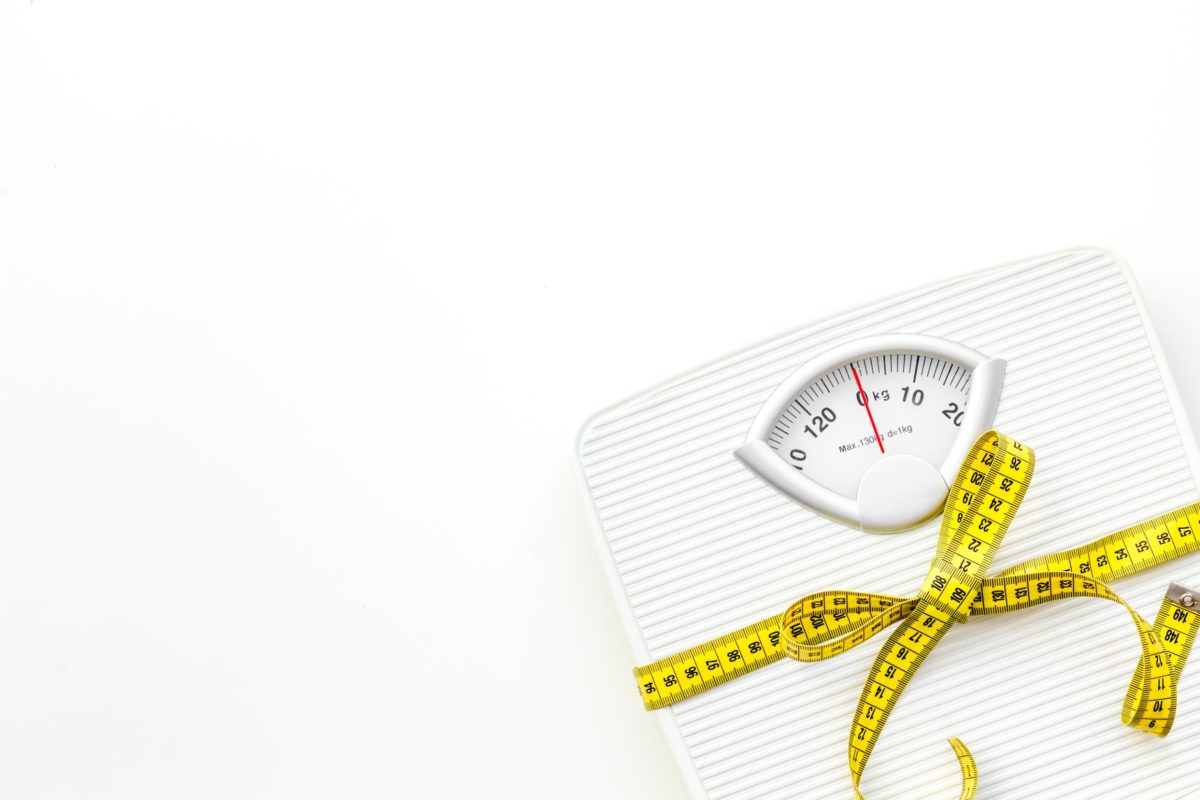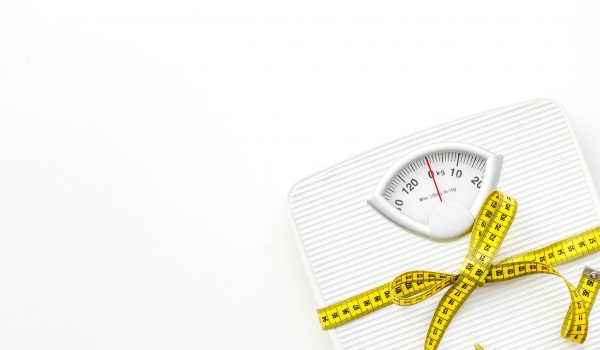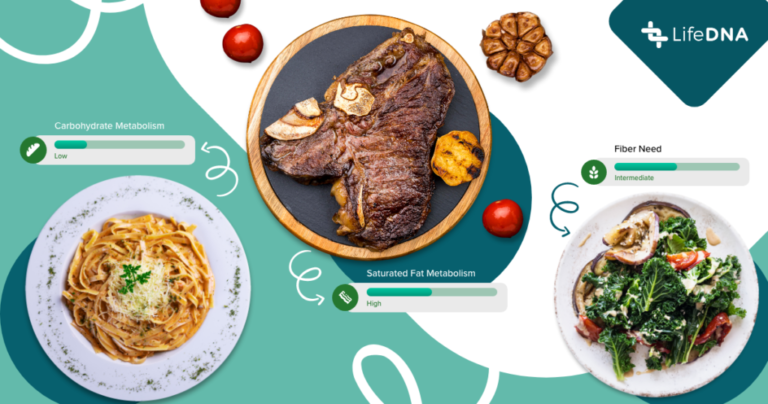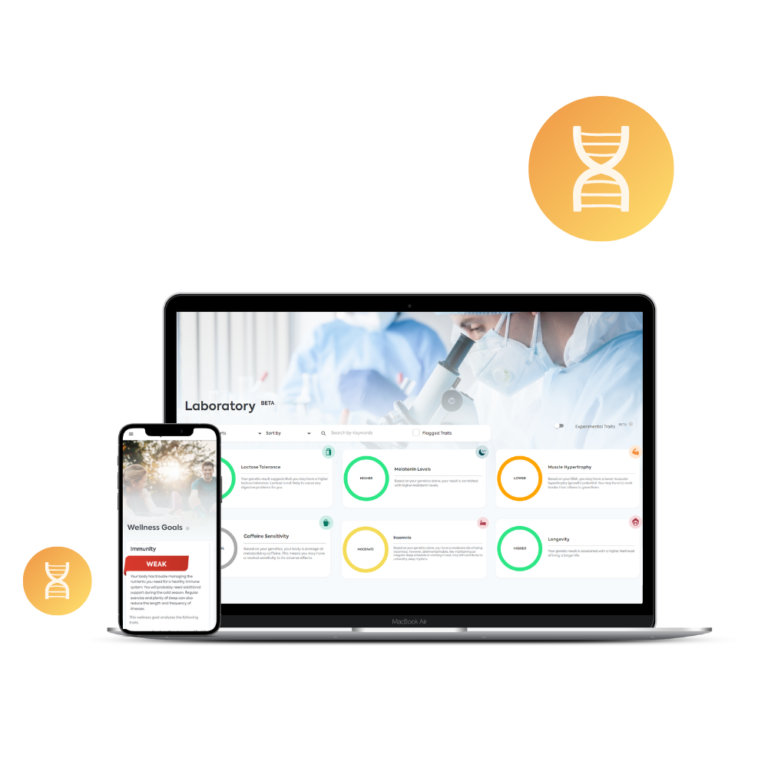Do Weight Loss DNA Tests Actually Work?
Aira
on
November 10, 2022

Do Weight Loss DNA Tests Actually Work?

If you want to lose weight, the best DNA test will help you do that based on the way your own, individual body works.
The problem with most diets is that they assume we all have the same bodies, metabolisms, and genetic potential.
While a DNA diet alone won’t help you lose weight (you’ll need to put some effort in too), research has proven that eating a diet tailored specifically to your make-up can be a powerful aid to weight loss.
Read on to find out how you can use the latest discoveries in genetic science to help you drop the pounds.
Here’s the TL;DR…
- We know that your genes have a big impact on how your body processes food and distributes weight
- DNA test results can arm you with the information you need to optimize weight loss (but the effort has to come from you)
- Most DNA testing companies just give you your test results with not much actionable information
- For the best chance of losing weight, choose a testing company that helps you with eating plans, recipes and food guides too
Note: Looking for DNA test results that will help you lose weight? Learn more about LifeDNA’s Nutrition Report
How does your DNA affect weight loss?
Over the last decade, nutrigenomics has revealed a wealth of information about how DNA can impact weight loss.
We now know that there are many genes involved in how your body processes nutrients. Knowing which versions of those genes you carry can help you decide on the right diet for you.
For instance, if your overall genetic pattern suggests that your body has a higher tendency than average to store excess carbohydrates as fat, you could be better off eating more proteins and fats.
But how can a DNA test help with weight loss?
The best DNA tests today can reveal over one hundred of your genes. Many of these are involved in how your body processes the nutrients in your food.
You have inherited a mish-mash of genes from both your parents that govern how your body works.
Nutritional genomics—also known as nutrigenomics—is the science that studies the relationship between your genome (genes), what you eat and your health.
Nutrigenomics is uncovering more and more every year on how your DNA affects your weight, as well as your fitness. For instance, genetic variants impact the effect of saturated fat on your body, and the levels of hormones that regulate your appetite.

What is the best DNA test for weight loss?
Genetic testing for weight loss has huge potential to help a lot of people get to a healthy weight and stay there.
For that reason, multiple companies have sprung up to test your DNA so you can give yourself the best chance of reaching your ideal weight. But they’re all different, with their own advantages and disadvantages.
You need a DNA test that gives you actionable results: one that tells you exactly what to do, how to do it, and why.
Science is moving so fast that you need a DNA test that gives you more than just a one-off reading: You need a test that automatically updates and builds on your results with the latest discoveries in nutrigenomics.
Take a look at our rundown of the biggest players on the genetic testing market to decide which one could hit the mark for you on your weight loss journey.
LifeDNA
LifeDNA is more than just a genetic testing company. Our mission is to inspire people to unlock the power of their DNA so they can live healthier and more fulfilling lives.
That’s why if losing weight is your goal, our tests give you the best possible chance of success. Right now, we’re developing an app that will give you your personalized macronutrient breakdowns (carbohydrate/fat/protein ratios), meal plans, recipes, ingredients lists, and shopping lists, based on your own individual genetic fingerprint.
In a nutshell, this groundbreaking app will take all of the work out of grocery shopping and meal planning, by telling you exactly what you should be eating and how to put the right foods together in delicious meals.
And because we have a database of 500,000 different restaurants across the US and Canada, you’ll get bespoke menus and personal meal recommendations that fit your DNA diet.
We analyze 20+ genetic traits so you can discover which foods you should be eating more or less of, based on how your individual body works.
You’ll also get to maximise your fitness potential too: our reports examine 20+ traits on your risk of injury, the best types of exercise to achieve your goals and more.

How effective are DNA weight loss kits?
Of course, the ultimate question is ‘do weight loss DNA tests really work?’
And the answer is yes. Because they help you tailor your diet to give yourself the best chance of losing weight, based on your DNA.
Then, the rest is up to you!
That’s why you need a DNA test that comes with more than just your results and a few one-size-fits-all recipes.
To lose weight, you need as much support as you can get. Look for a DNA test that includes meal plans, ingredients lists, and recipes tailored to your own personal genetic makeup and weight loss goals.
LifeDNA has all that covered, plus an interactive guide covering all of North America to help you eat out, giving you the best meal options based on your DNA.
Final Thoughts
Learning about your DNA won’t automatically shift your excess weight. What you do with that information definitely can, though.
We now have proof that when it comes to losing weight, we’re all wired a bit differently.
Note: Looking for DNA test results that will help you lose weight? Learn more about LifeDNA’s plans here.
*Understanding your genetics can offer valuable insights into your well-being, but it is not deterministic. Your traits can be influenced by the complex interplay involving nature, lifestyle, family history, and others.
Our reports have not been evaluated by the Food and Drug Administration. The contents on our website and our reports are for informational purposes only, and are not intended to diagnose any medical condition, replace the advice of a healthcare professional, or provide any medical advice, diagnosis, or treatment. Consult with a healthcare professional before making any major lifestyle changes or if you have any other concerns about your results. The testimonials featured may have used more than one LifeDNA or LifeDNA vendors’ product or reports.
- Category: Nutrition


